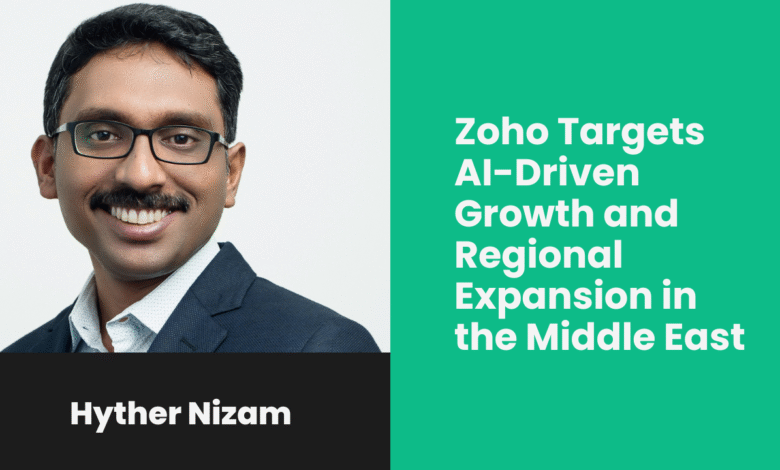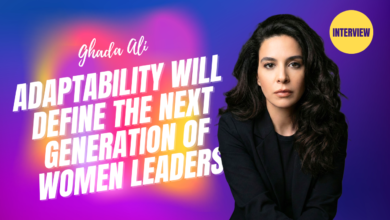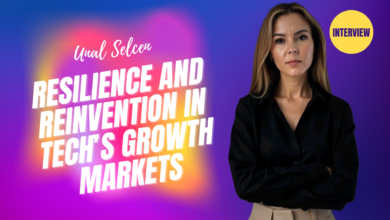Zoho Targets AI-Driven Growth and Regional Expansion in the Middle East

At GITEX GLOBAL 2025, Zoho revealed an ambitious roadmap for the Middle East, highlighting its commitment to localization, data sovereignty, and AI-powered innovation. In this exclusive conversation, Hyther Nizam, the President for Zoho Middle East and Africa, discusses the company’s new Zia LLM, partnerships with regional entities, the growing demand for affordable business software, and Zoho’s vision to become the “business operating system” for enterprises and startups across the GCC
What’s Zoho’s focus this year at GITEX Global, especially as it marks the final edition at DWTC?
As a region, we’re seeing tremendous growth—around 50% year-on-year—making the Middle East our fastest-growing market globally. The UAE, in particular, stands out, and we’re deeply focused on localization. We were among the first to launch FTA-certified accounting software and have integrated with local payment vendors and applications. This year, our major focus is on bringing contextual AI into our existing products. It’s not about introducing standalone AI tools, but embedding intelligence seamlessly into our ecosystem.
We also launched our own large language model, Zia LLM, at GITEX. Unlike many software companies that rely on OpenAI or Gemini, we built our own in-house model, optimized for B2B use cases within the Zoho ecosystem. It’s not a massive model—it ranges between 1.3 billion and 7 billion parameters—but it’s purpose-built for solving CRM and business problems, not academic ones. The key advantage is that we provide this LLM at no additional cost to customers.
How has the response been from customers and partners at the event?
The engagement this year has been phenomenal. We’ve seen a surge in partnership inquiries—almost double compared to last year. Many local startups and tech vendors, from payment gateways to software integrators, are eager to collaborate with Zoho. We’ve also noticed strong interest from large enterprises across the GCC, not just in the UAE but from Saudi Arabia, Qatar, and Oman.
Our enterprise-ready solutions, such as Zoho CRM, Zoho Books, and Zoho Creator, are gaining significant traction. It’s encouraging to see major brands considering Zoho as their platform of choice.
Zoho has been proactive in collaborating with government entities and free zones. How is this expanding across the Gulf?
UAE has always been a frontrunner in digital transformation. We’ve partnered with Dubai’s Department of Economy and Tourism (DET) and Dubai Chambers to support startups and small businesses. Through these initiatives, entrepreneurs setting up a company in Dubai get access to Zoho’s suite for free during their first year.
We’re now replicating this success across the GCC. In Saudi Arabia, we’ve partnered with Monshaat, a government-backed body supporting startups and SMEs, to provide Zoho credits and free access for a year. We’re also working with incubators and accelerators in Qatar and Oman to extend similar benefits. The response from Saudi has been particularly strong.
Data sovereignty has become a major topic in the region. What’s Zoho’s approach?
This is an area we take very seriously. Data sovereignty has shifted from being an exception to a necessity. Every country now has its own data privacy and compliance regulations, and Zoho adheres strictly to these.
We’ve already launched data centers in Riyadh and Jeddah, and we plan to bring similar infrastructure to the UAE soon. Zoho operates 18 data centers globally and aims to exceed 100 in the coming years. Our model is unique—we run our own cost-efficient, open-source-based infrastructure, allowing us to offer high performance without passing hefty costs to customers.
Zoho One has been a flagship product for SMBs. What kind of feedback have you received from clients?
Zoho One has been a game-changer, especially for small and medium businesses. SMBs often struggle with multiple software vendors and integration costs. With Zoho One, they get 50+ integrated applications covering everything from accounting and HR to CRM and marketing—all at an affordable price from a single vendor.
We’ve seen that around two-thirds of our SMB customers now run entirely on Zoho One. For mid-market and enterprise clients, the adoption usually starts with one or two modules—like CRM or HR—and then expands over time. Once they experience the value and cost-efficiency, they gradually transition to the full Zoho One suite.
Looking ahead to 2026, what milestones are you aiming for in the Middle East?
Our vision is clear—we want Zoho to be the go-to business software brand for every company in the region. We’re focused on articulating the value of our affordability and how it’s achieved—by running our own data centers, staying private, and maintaining operational efficiency.
We’re doubling down on AI integration, not as an add-on but as an embedded layer across our products. The goal is to make AI feel natural and contextual, enhancing productivity without users even realizing they’re using AI. As we continue to invest heavily in AI engineering and local partnerships, our aim is to make Zoho the business operating system of choice across the GCC.
We’re proud of the progress we’ve made in the Middle East and excited about what’s next. Our goal remains to deliver accessible, intelligent, and localized software that empowers businesses of all sizes.




